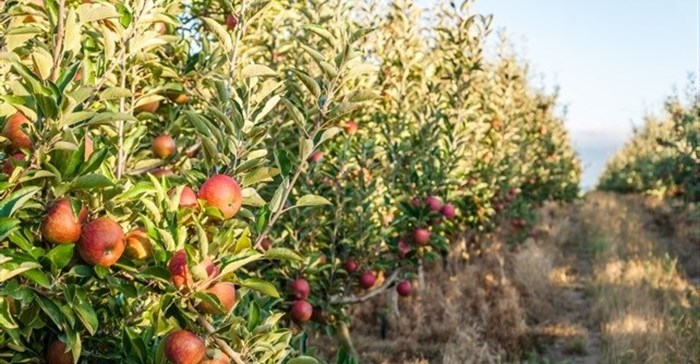At the turn of the 21st century, German consumer pressure groups lobbied supermarkets to reduce the use of chemicals in managing the pests in the crops they sold and that pressure also came to bear on the apple and pear growing regions in South Africa. Today the growers for Tru-Cape Fruit Marketing have some of the lowest Minimum Residue Levels (MRL) in the land and exceed the European Union standard in this regard.

Tru-Cape Oak Valley
“Our Integrated Pest Management (IPM) programme was developed as a response to the need to find ways to successfully manage pests and diseases that impact apple and pear crops in a way that has the least impact on the environment," says De Kock Hamman, technical advisor at Ceres Fruit Growers, one of Tru-Cape’s grower-owned packhouses.
“In 2011 we detected between 27 and 30 active chemicals to manage pests and now just four or five which are also softer chemicals that have less impact on the environment. We also changed the way we apply chemicals by using ultra-low volume sprayers, we spray at night to avoid bees and birds and monitor temperature carefully for triggers for coddling moth outbreak, for example.
“We use a ladybird in the Tru-Cape logo to link to our IMP efforts. Natural predators play a significant role in managing pests like aphids, for examples. We also use biological tools that are highly focussed and not harmful to the operator or the environment like mating disruptors which very effectively control the Coddling Moth population by confusing the male about the location of the female by spreading moth pheromone over a wide area so the male dies before mating.
Releasing sterile insects is similarly successful. We also apply sticky physical barriers to tree stems to prevent bugs reaching the fruit. These techniques, combined with a change in how we manage past-prime trees - chipping and mulching organic matter rather than burning it - has seen a great improvement in the management of orchards with as few chemicals as possible and requiring less water than before,” he says.
According to Ceres Fruit Growers managing director, Francois Malan, 90% of their crops comply with the German standard which is a third more rigorous than the EU standard. “Ceres growers can hold our heads up high when we meet our international colleagues as being among the global leaders in positive environmental practices,” he says.
Orchards of the Future
According to Malan, the drought conditions of summer of 2015 had only a limited impact on the harvest as growers quickly responded with water-saving programmes and more targeted watering that used technology like FruitLook GIS which highlighted areas that most urgently needed water. “This technology solution was developed by the SA Department of Agriculture, Forestry, and Fishing and it measures evapotranspiration which is the water loss from the soil and from the plant itself and directly linked to growth. Growers are also using technology to schedule irrigation during off-peak times.” he ends.
Hamman says that Ceres Fruit Growers are active in the Orchards of the Future programme which is an industry-wide peer group to share best practice among the technical experts. As our factory has no roof we must do all we can do to better understand and care for our environment.” he ends.



































